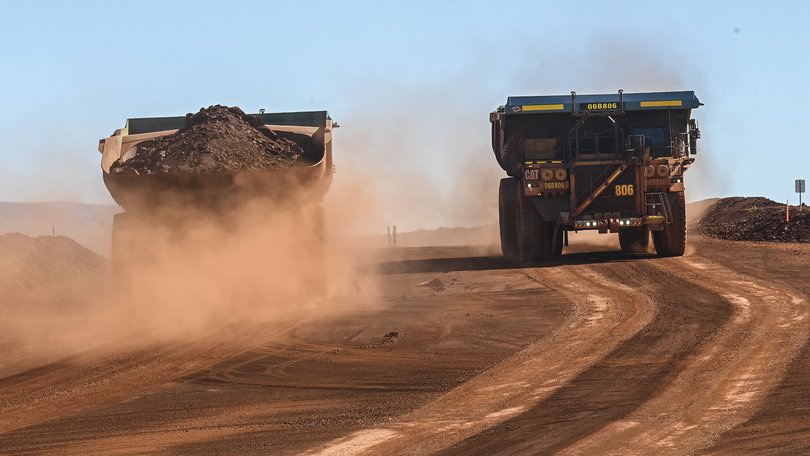RBC proposes BHP-Rio Tinto iron ore joint venture in the Pilbara to curb China’s growing purchasing power
WA’s two most prolific iron ore miners should join forces to prevent China’s emboldened commodities buyer from squeezing them on price, according to one global investment bank.

WA’s two most prolific iron ore miners should join forces to prevent China’s emboldened commodities buyer from squeezing them on price, according to a major global investment bank.
RBC Capital Markets believes it would be in the best interests of BHP and Rio Tinto to form a cartel-like alliance in the Pilbara to stop China’s growing push to consolidate its iron ore purchasing power.
China Mineral Resources Group has reportedly banned shipments of BHP’s WA iron ore until the mining giant caves into demands for spot cargo discounts and more sales to be settled in Chinese yuan instead of the US dollar.
Sign up to The Nightly's newsletters.
Get the first look at the digital newspaper, curated daily stories and breaking headlines delivered to your inbox.
By continuing you agree to our Terms and Privacy Policy.“While a ‘full’ Rio/BHP Pilbara merger remains out of reach, we think a ‘joint venture-light’ approach focused on logistics, blending, and decarbonisation alliances could dilute the CMRG’s influence, defend the Pilbara premium and maintain control over benchmark price formation, as well as capturing margin and capex benefits,” RBC stated.
BHP and Rio tried to merge in 2010 — a move blocked by competition regulators across the globe.
“A ‘joint-venture light’ approach would aim to recreate the industrial logic of the 2010 BHP/Rio JV (like) shared infrastructure, cost leverage (and) disciplined pricing, but would likely be based on a networked alliance model, not a merger, that aligns Pilbara producers on infrastructure, decarbonisation, and logistics,” RBC stated.
The proposed JV framework would stay within competition law, according to RBC, and unlike in 2010 the iron ore market concentration is much lower which would potentially ease lingering “antitrust concerns”.
Fortescue, Gina Rinehart’s Roy Hill and Hancock, and Mineral Resources have all muscled in on BHP and Rio’s Pilbara iron ore dominance in recent years.
China, the world’s largest iron ore consumer, buys about 75 per cent of global seaborne iron ore.
Beijing established CMRG three years ago to buy ore on behalf of its steelmakers in a bid to gain more pricing leverage as a monopolistic buyer.
“In short, CMRG’s creation may have unintentionally reopened the strategic logic for limited Pilbara co-operation between Rio and BHP — once unthinkable, now potentially pragmatic,” RBC stated.
